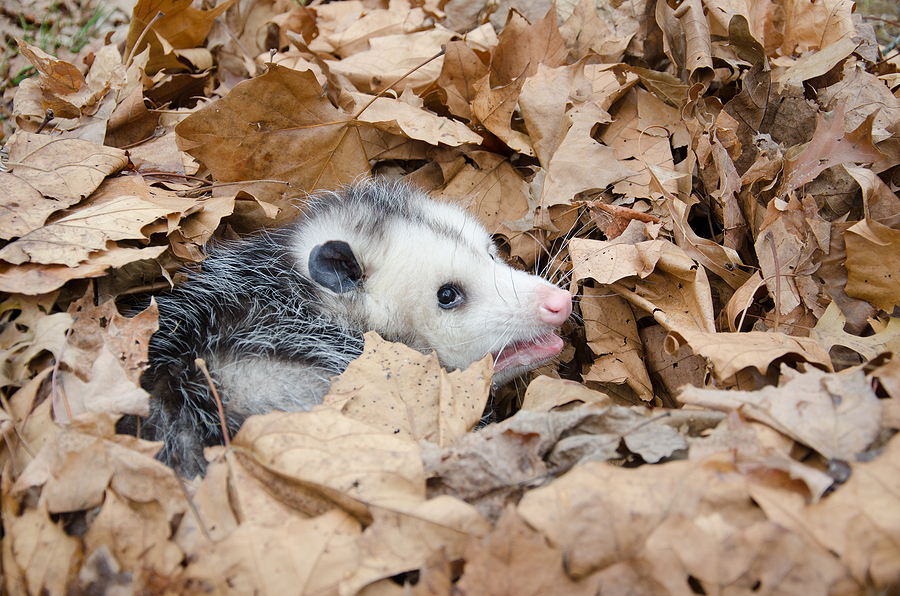Welcome to our comprehensive guide on controlling opossums effectively, designed primarily for homeowners who seek humane and efficient solutions. This blog aims to provide you with practical steps and methods for opossum removal and control. Here, we will introduce you to various opossum repellents and elucidate their effective use.
By the end of this guide, you will be well-equipped to handle the opossum issue on your property with confidence and knowledge. Whether you’re dealing with a nocturnal visit from a single opossum or a whole family, stay tuned to learn how to take back your space wisely.

The 101 on Getting Rid of Opossums
Before we delve into controlling these marsupials, it’s essential to understand their behavior and habits. Opossums are opportunistic creatures that often take advantage of food sources near human dwellings. With a diet ranging from insects to garbage, opossums are attracted to homes with easy access to food and shelter. The presence of an opossum in your yard or attic could cause damage to plants and property.
Additionally, they can also carry diseases that pose a threat to both humans and pets. Although opossums are not well known to carry Rabies, they can contract and spread other diseases and parasites to people and pets, such as ticks, fleas, and roundworms. Therefore, it’s crucial to take steps for opossum control once you spot them on your property.
Opossum Removal
The first step towards controlling opossums is eliminating whatever it is that attracts them. Regularly secure all garbage cans and remove fallen fruits and nuts from the ground. Keep your lawn trimmed, and any potential entry points, such as holes in fences or gaps in walls, should be sealed off.
If you discover an opossum den on your property, the best approach is to seek professional help. Opossums can be aggressive when cornered, and attempting to remove them yourself could result in injury. Wildlife experts have the experience and equipment to remove opossums safely and humanely.
Opossum Control
If you’re dealing with a recurring opossum problem, consider using repellents to deter them. There are various natural and commercial opossum repellents available on the market. Some common ones include predator urine, ammonia-soaked rags, or cayenne pepper spray. These repellents work by creating a scent or taste that opossums find unpleasant, causing them to avoid the area.
It’s essential to follow the instructions carefully when using any repellent, as some may be harmful to humans and pets if not used correctly. Additionally, remember that repellents are only effective for short periods and need regular reapplication.
When to Hire a Licensed Wildlife Control Company for Help
If you’ve tried various control methods, but the opossums keep coming back, it may be time to call in the professionals. A licensed and insured wildlife control company can help identify and seal off any potential entry points into your home or property, preventing future opossum infestations. They can also provide long-term solutions for deterring opossums from your yard, such as installing motion-activated sprinklers or ultrasonic devices.
Conclusion
In conclusion, controlling opossums effectively requires a combination of prevention, removal, and deterrence methods. By taking the necessary steps to eliminate potential attractants and using repellents correctly, you can successfully keep opossums away from your property. And if all else fails, don’t hesitate to seek professional help for a long-term solution. Remember, by practicing humane and responsible opossum control, you’re not only protecting yourself and your property but also these misunderstood creatures. So, be vigilant and take the necessary steps to keep your home critter-free.
Keep in mind that removing opossums is only half the battle; it’s also crucial to take steps to prevent future infestations. Contact Modern Wildlife Control at 317-847-6409 for safe and effective animal trapping and removal services for opossums in Indianapolis, Indiana and its surrounding counties. We serve residential and commercial customers.
Related Posts:
Tips for Controlling Nuisance Opossums Around Your Property
Understanding the Behavior of Opossums in the Wild
Best Strategies to Get Rid of Opossums Around Your Property
